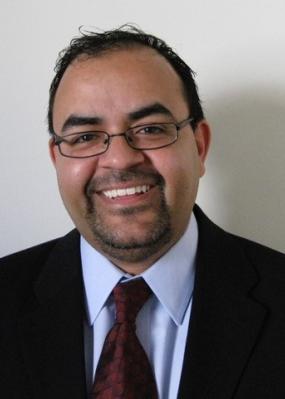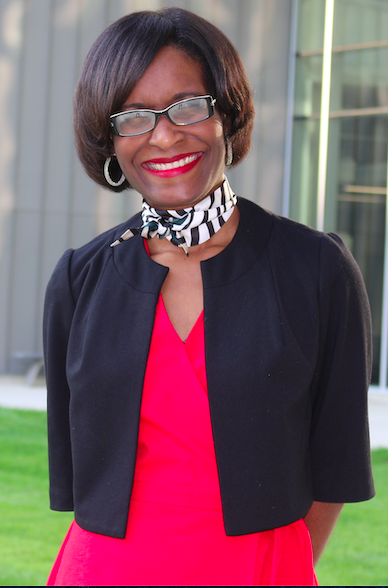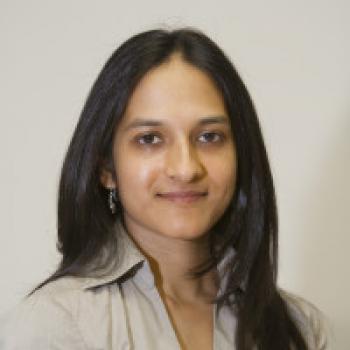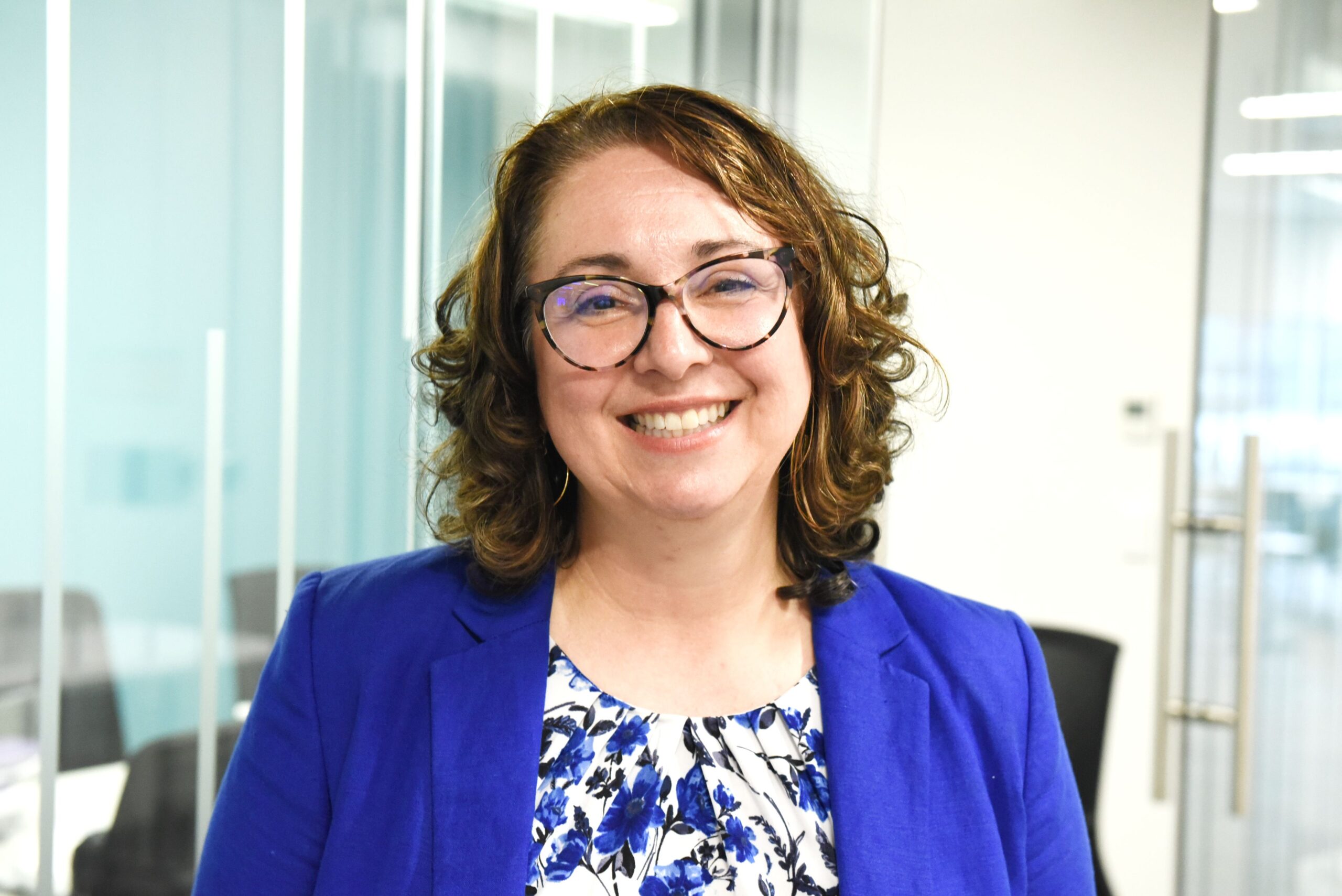SRCLD 2023 Invited Speakers

Dr. Raul Rojas is a leading researcher in database-referenced bilingual language sample analysis (LSA), as well as specialized longitudinal, large-scale data analysis, and best practices for bilingual speech and language pathology. He is the Director of the Bilingual Language Laboratory at the University of Kansas, which is conducting a series of externally funded longitudinal and cross-sectional projects with bilingual children. Dr. Rojas routinely publishes studies of bilingual children’s language development and academic achievement using large-scale, cross-sectional, and longitudinal databases and on the use of bilingual LSA.
As a Speech-Language Pathologist (SLP) certified by the American Speech-Language-Hearing Association, Dr. Rojas provided bilingual (Spanish-English) clinical services in multiple settings, including public schools and early intervention, which inform his teaching. He co-developed ability for SALT software (along with Dr. Aquiles Iglesias) to analyze bilingual language samples in Spanish and English, and provides professional development for SLPs, clinical researchers, and other professionals around the country. Dr. Rojas teaches courses focused on language disorders in children, bilingual assessment and intervention, and clinical research methodology with bilingual populations.
Session title:
Bilingual language sample analysis: Past, present, and future
Thursday, June 1 10:00-11:30 a.m.

Karla N. Washington, PhD, S-LP(C), CCC-SLP, BCS-CL is an associate professor at the University of Toronto, Department of Speech-Language Pathology, where she directs the Pediatric Language, Learning, and Speech (PedLLS) Outcomes Lab. Her prior appointment was at the University of Cincinnati, Ohio, USA, Department of Communication Sciences and Disorders. Her research and clinical interests focus on speech-language development for monolingual and multilingual preschoolers. Specifically, her research seeks to characterize language learning and use in typical and disordered contexts with a particular interest in understanding how the child’s contextual factors (i.e., Environmental and Personal, as defined by the World Health Organization’s International Classification of Functioning, Disability, and Health framework) are related to their outcomes. Along with her colleagues in communication disorders, linguistics, education, physics, and engineering, she applies different methodologies (e.g., acoustic duration, fMRI) to document learning and impairment in different linguistic contexts. In her effort to characterize child language development and disorder she applies intervention designs as part of a Randomized Controlled Trial as well as cross-sectional and longitudinal designs. In her present work, her focus on multilingualism documents Jamaican Creole and English-speaking preschoolers’ speech and language use, including functional communication while her focus on monolingualism documents language use in English-speaking preschoolers with and without developmental language disorder.
Dr. Washington is board certified specialist in the area of child language development and disorders and is active in NIH- sponsored research. Her prior efforts have been funded by entities such as the US Department of Education and an Endowment Gift Fund. She is an invited member of the International Expert Panel on Multilingual Children’s Speech and was the 2021 Chair of ASHA’s Academic Affairs Board. Dr. Washington is an Editor for Language, Speech, and Hearing Services in Schools and is an ASHA Fellow.
Session title:
Creative solutions in complex times: Drawings, stories, and acoustic duration as tools for characterizing Jamaican children’s language and speech productions
Thursday, June 1 1:30 - 3:00 p.m.

Dr. Sudha Arunachalam is an Associate Professor of Communicative Sciences and Disorders at New York University. In her research program, she examines how infants, toddlers, and preschoolers acquire their native language. She studies children who are developing typically, autistic children, and late talkers. In collaborations with researchers all over the world, she has studied children who are acquiring languages other than English. She is particularly interested in the learning mechanisms underlying language acquisition and in how caregiver-child interactions support learning. This interdisciplinary work integrates insights from the fields of communication disorders, linguistics, and cognitive and developmental psychology, and it involves several behavioral methods with a focus on eye-tracking. Sudha’s work has been funded by the National Institutes of Health, the National Science Foundation, and several private foundations. She was previously an Editor of the Language section of the Journal of Speech, Language, and Hearing Research, and she is the current Editor-in-Chief of the journal Language Acquisition. She is an ASHA Fellow.
SESSION TITLE:
Language input and intake in early word learning and comprehension
Friday, June 2 10:30 a.m. - 12:00 p.m.

Tiffany P. Hogan, Ph.D., is a Professor in the Department of Communication Sciences and Disorders at MGH Institute of Health Professions in Boston, Director of the Speech and Language (SAiL) Literacy Lab, and Research Associate at Harvard University. Dr. Hogan has published over 100 papers on the genetic, neurologic, and behavioral links between oral and written language development, with a focus on improving assessment and intervention for children with Developmental Language Disorder, Dyslexia, and/or Speech Sound Disorders. Her advocacy for children with communication disorders has led her to co-found a DLD informational website: www.dldandme.org, host a podcast (www.seehearspeakpodcast.com), organize an annual conference on implementation science in CSD (https://info.mghihp.edu/isforall), and contribute information for articles in numerous news outlets including the New York Times, the Boston Globe, along with several television and radio appearances.
Session title:
Dyslexia and developmental language disorder: School-based screenings, assessments, interventions, and implementation science
saturday, June 2 11:00 a.m. - 12:30 p.m.
